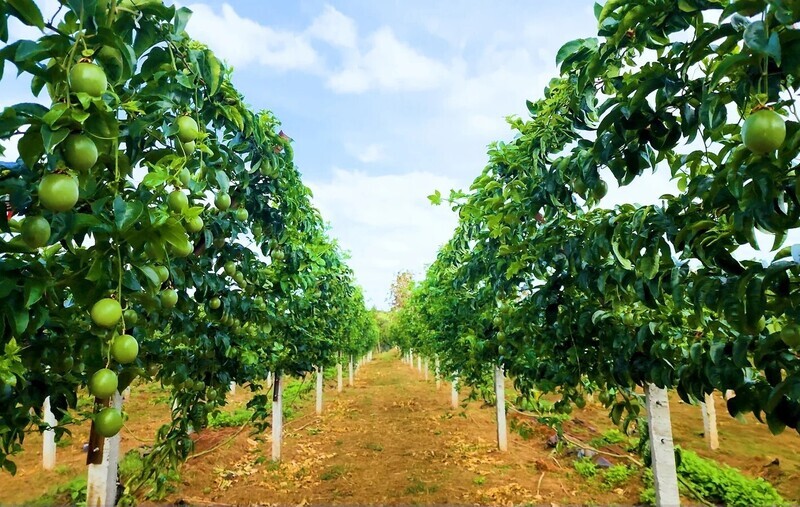
Vietnam’s fruit and vegetable exports to EU triple in four years
19:05 | 23/03/2025 20:40 | 23/02/2026Trade
From traditional markets to digital platforms
On the morning of June 14, 2025, the cultural house of Phieng Khoai Commune (Yen Chau District, Son La Province) was transformed into a “live studio” for a major digital commerce event: the OCOP Mega Livestream Fair. Within just three hours of nonstop broadcasting, more than 3,000 orders were placed via livestream, with millions of views and interactions recorded across platforms like TikTok Shop, Vietnam Post’s e-commerce site, and other affiliated social media channels.
This event was part of a broader program to boost the consumption of local farm products, jointly organized by the Son La Department of Industry and Trade, Vietnam Post Corporation, and major e-commerce platforms. The aim went beyond mere sales, it was to spread the image, values, and stories of highland specialties to consumers nationwide and abroad.
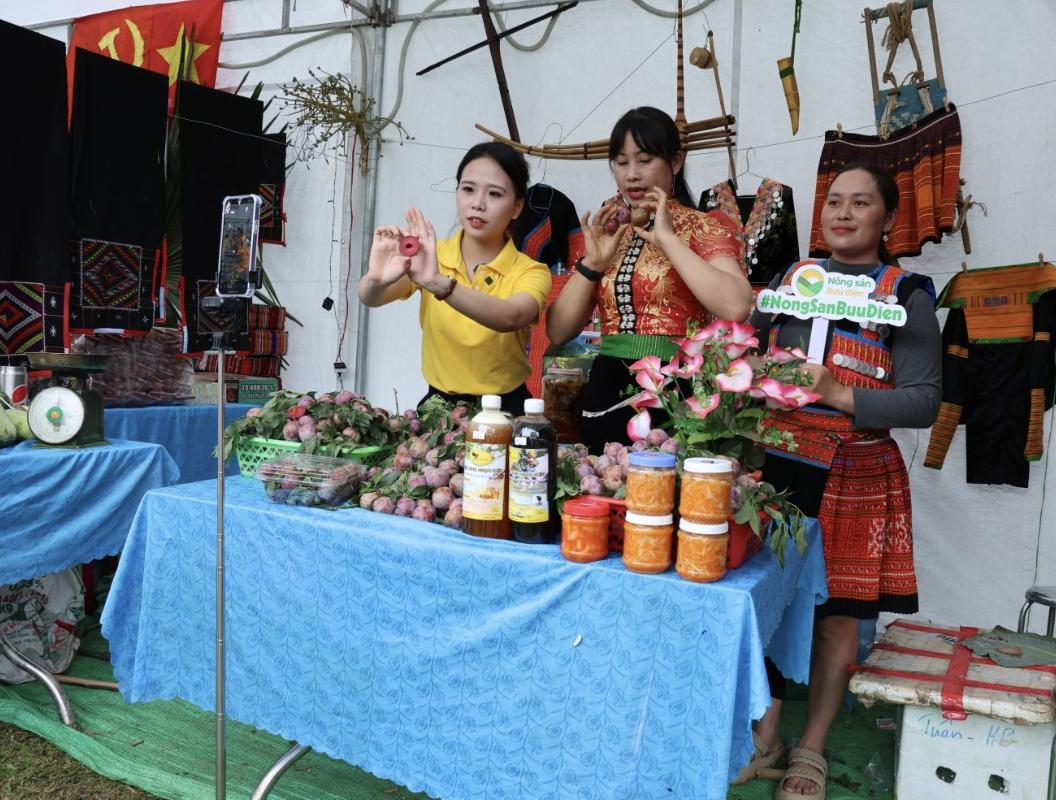 |
| Son La is determined to bring OCOP products onto e-commerce platforms as an essential strategy. Photo: Phan Trang |
The Mega Livestream event marked a breakthrough by orchestrating a “digital symphony” between farmers, cooperatives, and popular KOLs/KOCs such as Thanh Ao Hoa, Solai, and Long Bo Tuoi. Iconic Son La products such as Hau plums, green-skinned mangoes, dried strawberries, and black garlic were promoted in a lively and appealing manner, accompanied by emotional regional narratives and attractive pricing.
The hosts were none other than the local farmers themselves, those who know every plum, every clove of garlic they grow. They were not just selling products, but sharing the essence of their homeland. “When customers buy farm products, they are also buying the story behind them. That’s what builds connection and loyalty,” said a cooperative representative.
Though livestreaming isn’t new to Son La, this was the first time a province-wide event was executed at such scale, with synchronized technical setups, communications, and manpower. The Mega Livestream was more than a virtual sales session, it was a professionally organized digital marketplace integrated with local trade promotion and on-site experiences.
According to the provincial Department of Industry and Trade, Son La is determined to bring OCOP products onto e-commerce platforms as an essential strategy. In today’s context, digital commerce is no longer optional, it is the only viable path for highland agricultural products to break through barriers and reach broader markets.
The local government has been proactive, from providing digital skills training, assisting with product photography and descriptions, to connecting with major e-commerce platforms and running promotional campaigns. Numerous training sessions on livestreaming, online sales techniques, and digital storefront management have been held for farmers, cooperatives, and small businesses.
Wider impact and long-term strategy
Beyond immediate sales results, the Mega Livestream created strong media impact, raising awareness of local products, stimulating consumer demand, and paving the way for digital agriculture. With over 248 certified OCOP products, Son La boasts a treasure trove of agricultural specialties that deserve to be digitized and widely promoted.
The province plans to organize Mega Livestream events regularly based on harvest seasons, especially during peak times, to reduce stockpiles and increase added value. At the same time, it is developing a digital commerce ecosystem tied to regional specialties, integrating tourism, agriculture, and e-commerce.
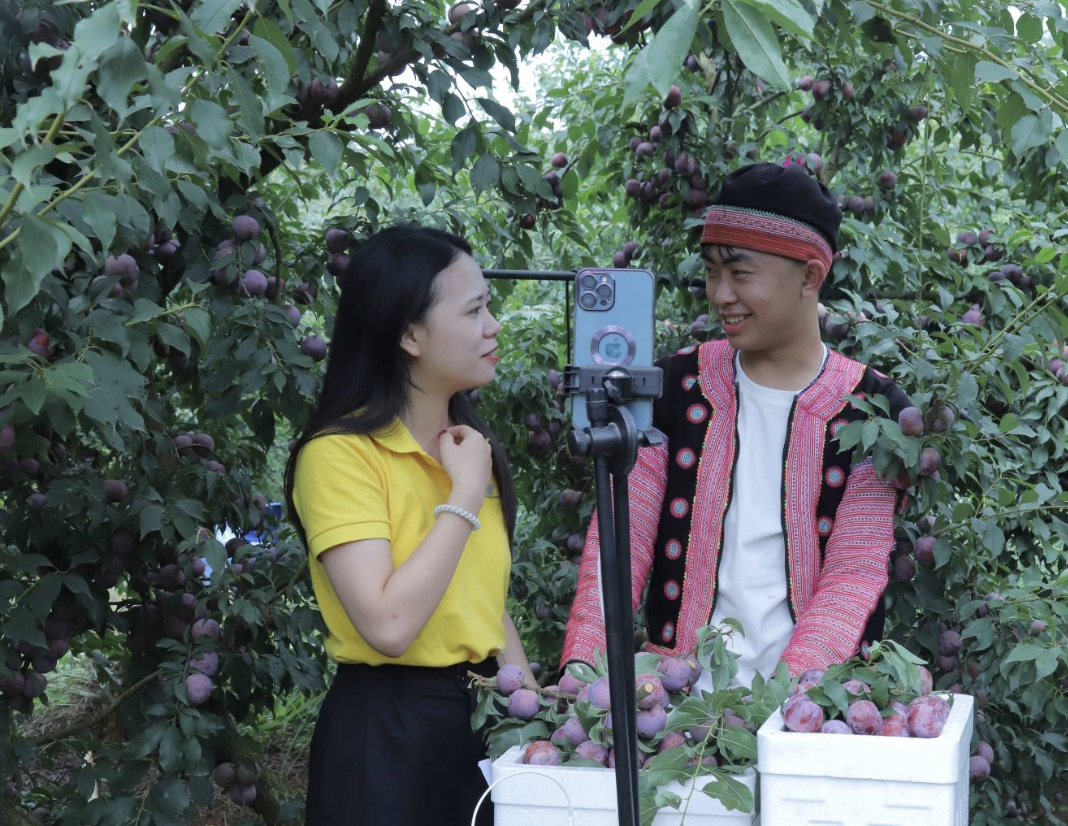 |
| After nearly four years of implementation, Son La has developed 83 OCOP-certified products. Photo: Phan Trang |
“When farmers master livestreaming, they master the market. We are not just teaching them how to go live, we are helping them build market awareness and brand narratives,” emphasized a representative from Vietnam Post.
A standout feature of the program is the tight collaboration between local authorities, technology providers, the postal network, and the community. From policy to remote villages, from digital storefronts to fruit-laden orchards, a connected and people-centered agricultural model is taking shape.
Local residents shared that selling has never been so accessible. In the past, each plum harvest was limited to local buyers and uncertain prices. Now, with livestreaming, they can sell directly to consumers in Hanoi, Ho Chi Minh City, and even abroad, at better prices, with more control and less risk.
The Mega Livestream in Son La stands as a vivid example of how digital transformation is reshaping the distribution of farm produce. More than just a temporary initiative, it marks a strategic shift in how local producers approach markets. When every plum or garlic clove is enriched with a story, a photo, and a livestream link, these products transcend their physical form, they become ambassadors of a local brand, even a national identity.
Son La hopes that initiatives like the Mega Livestream will continue to expand, becoming familiar “digital markets” where consumers can buy highland specialties from home, while farmers confidently reach out to the world from their own villages.
As part of the One Commune, One Product (OCOP) program, Son La Province has proactively developed a master plan and established a set of product evaluation and classification criteria tailored to the unique conditions of its mountainous terrain. Districts and cities have reviewed and selected a variety of signature agricultural products from highland villages, where ethnic minority communities make up the majority, for inclusion in the province’s overall development plan. Each product not only reflects the flavors of the mountains and forests but also embodies the hard work, cultural identity, and aspirations for progress of ethnic minority communities.
Notably, the program’s implementation has been integrated with communication campaigns, technical support, and on-site guidance to help local people, especially ethnic minorities, identify and register their most promising local products for potential OCOP development. Hundreds of training sessions and orientation workshops have been held at the grassroots level, helping villagers gradually adopt a market-oriented production mindset and raising their awareness of product quality, design, and intellectual property, which are core elements of the OCOP program.
From ripe Moc Chau plums and Ta Xua Commune’s Shan Tuyet tea to Sop Cop forest honey and traditional handicrafts like Chieng Chau brocade and Quynh Nhai bamboo and rattan products, all are being gradually standardized, packaged, promoted, and brought to wider markets through e-commerce platforms, local and national trade fairs, livestream sales events, and modern distribution channels.
After nearly four years of implementation, Son La has developed 83 OCOP-certified products. Among them, 51 products have been rated 3 stars, 31 have achieved 4 stars, and one product has earned a prestigious 5-star national OCOP certification. These figures represent more than just numbers. They reflect a fundamental shift in the mindset and production practices of hundreds of ethnic minority households in remote mountainous areas.
Looking ahead, Son La Province will continue to expand production scale, invest in advanced processing technologies, enhance product traceability, and develop OCOP clusters linked with community-based tourism. These efforts aim to build a multi-value OCOP ecosystem that both improves local livelihoods and preserves traditional cultural identities.

19:05 | 23/03/2025 20:40 | 23/02/2026Trade
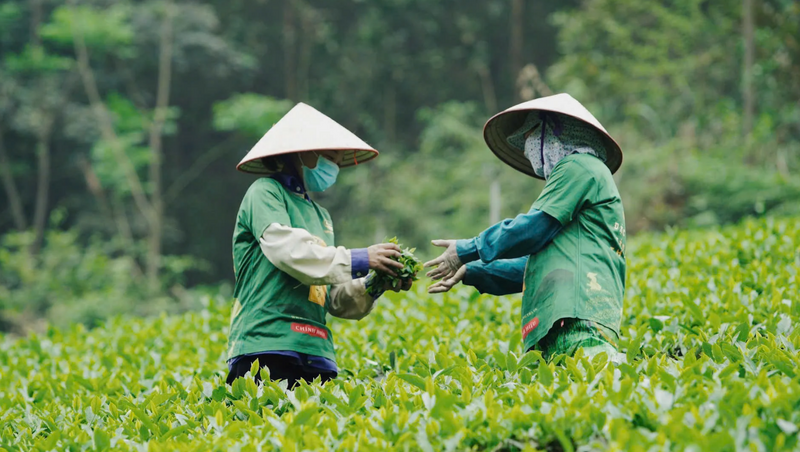
19:05 | 23/03/2025 20:38 | 23/02/2026Trade

19:05 | 23/03/2025 20:30 | 23/02/2026News and Events
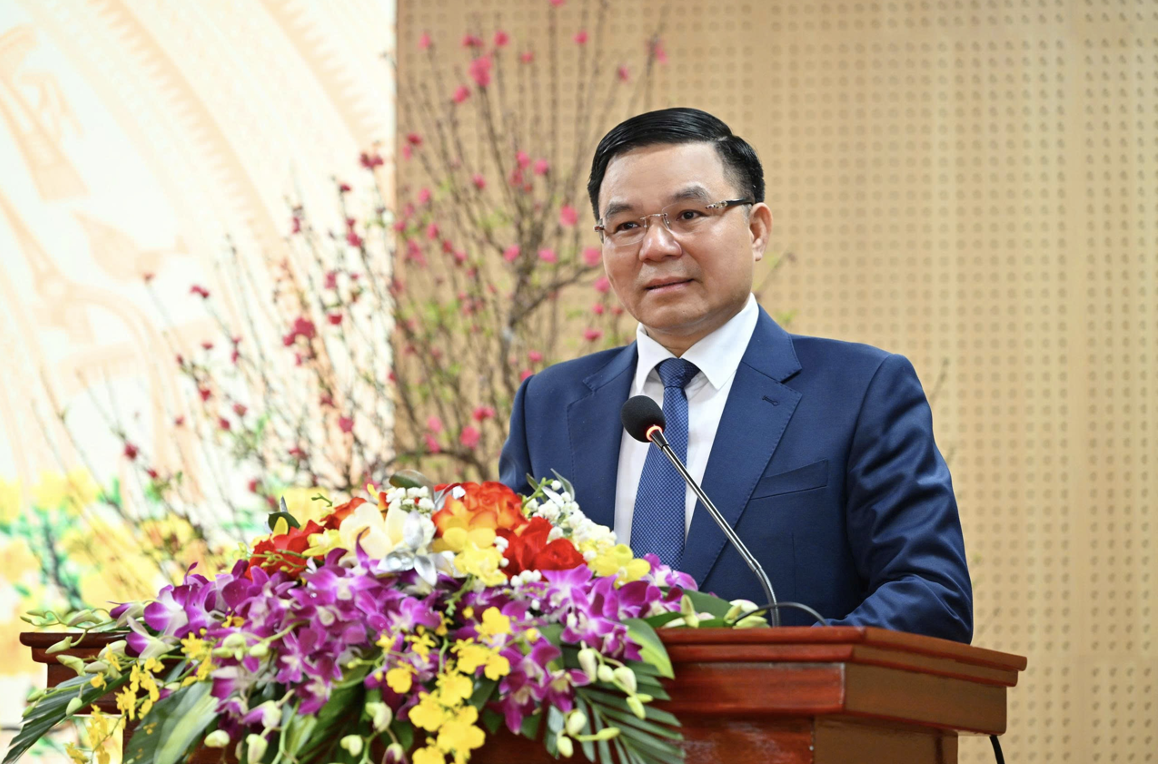
19:05 | 23/03/2025 20:29 | 23/02/2026News and Events

19:05 | 23/03/2025 20:14 | 22/02/2026News and Events